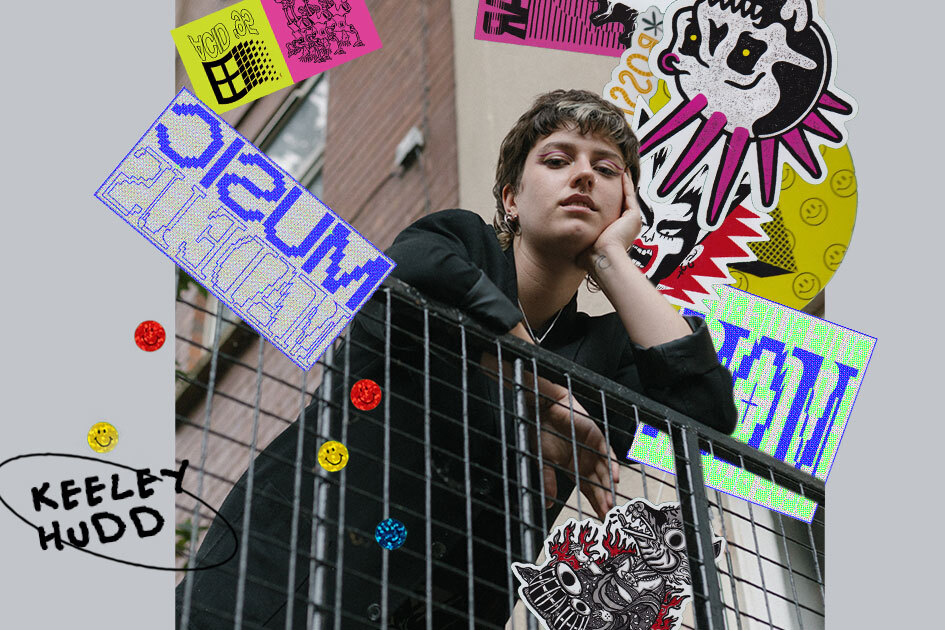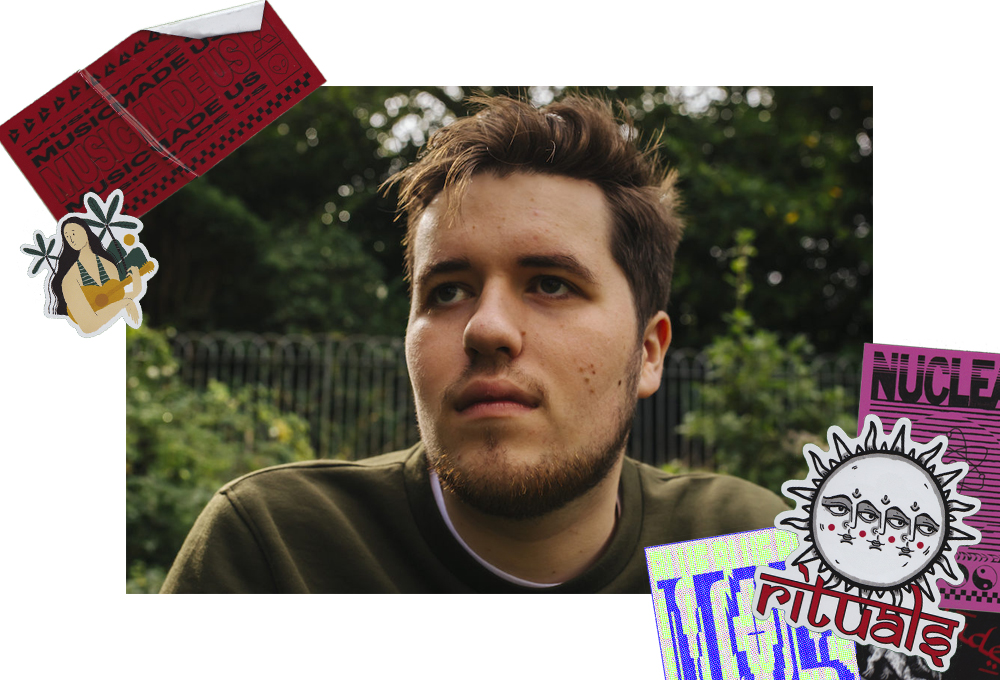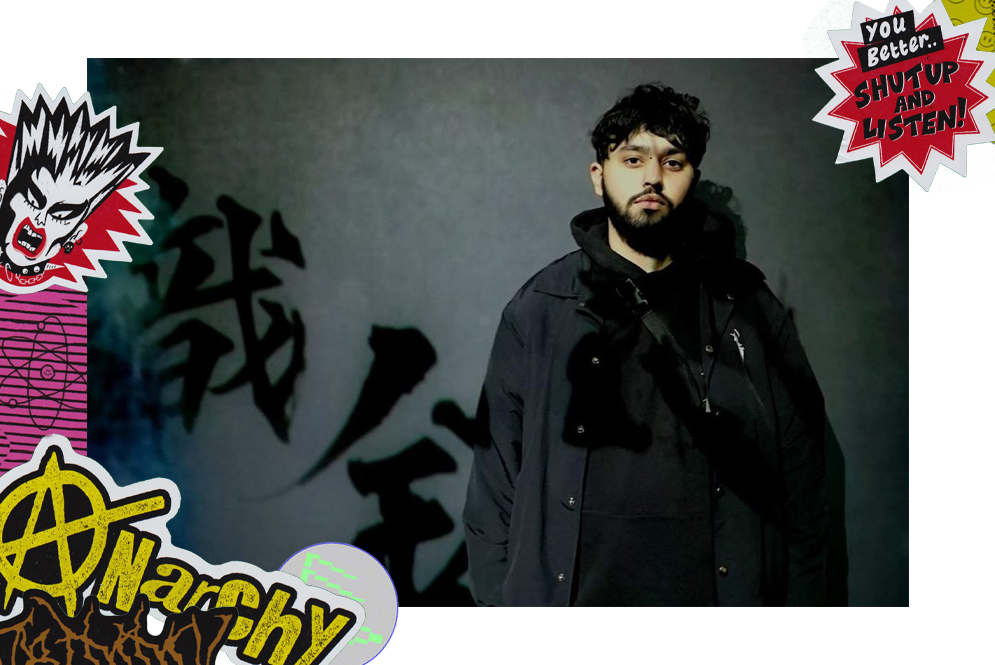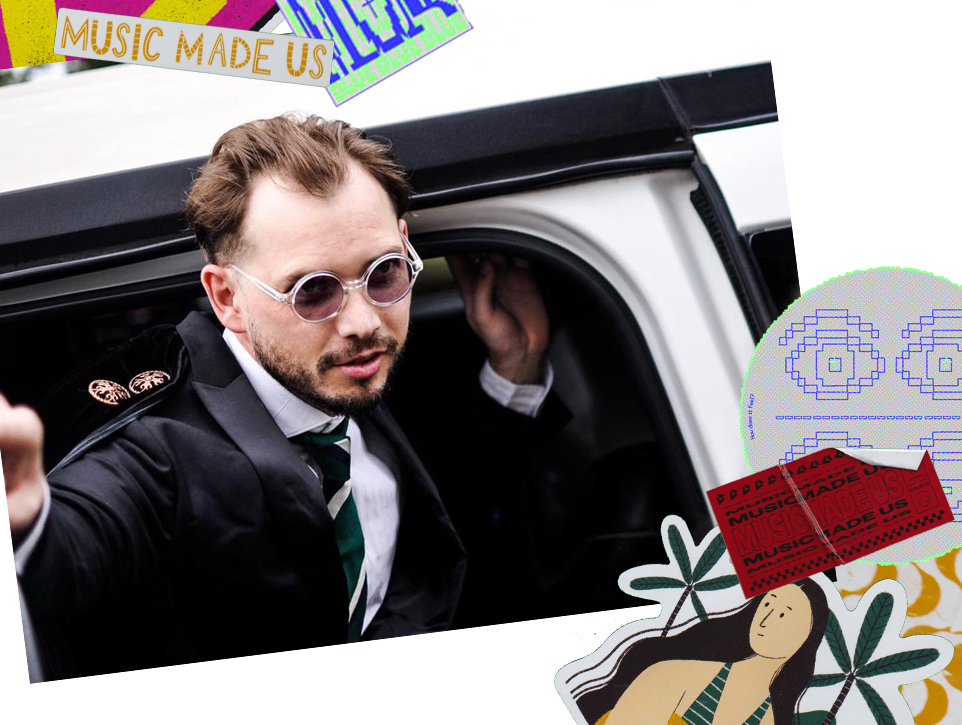As part of our Music Made Us campaign, Keeley Hudd from BIMM Institute Bristol explains the influence of strong female role models on her work. She also explores her love of Bristol and its community and details the importance of inclusion.
I’ve always taken influence from strong female, queer and non-conforming artists. Thanks to my mum, I spent a lot of my childhood listening to Tina Turner, Madonna and Stevie Nicks. She would often rotate between these 80s bangers, ripped CDs of happy hardcore DJs at free parties and raves, soft rock ballads, and house classics. On the other hand, my dad would play lots of UK pop and rock and loads of singer-songwriters.
They gave me a strong foundation and broad palette to kick off my musical interests, and as I got older, I found my own tastes. I fell in love with the likes of Kate Bush, Prince and Grace Jones. These were icons with such unique sounds and striking looks, completely unafraid to express their own style through music, art and fashion. Combined with my love of soul, funk and hip-hop developed in me by friends, this really kicked off my love of the groove. I saw how important it was as the backbone of a track, holding everything together and driving the force of the tune.
When I realised how much these tracks were sampled and continued to influence production up to this day. That made me more interested in music-making. The way that old songs can be morphed and recreated; finding the roots of something and seeing how another artist has taken influence from it, tracing that lineage. I think I’ve just always wanted to listen to everything; to understand it fully and know how and why it exists.
“I feel pretty at home in this post-humanist, nostalgic yet futuristic vibe.”
Being a DJ and producer myself, I also closely follow and take a lot from the UK underground dance scene and culture. There are strong echoes of the sights, sounds, and styles I witnessed vicariously through my raver mum. So I feel pretty at home in this post-humanist, nostalgic yet futuristic vibe going on at the minute.
I’m always coming full circle with the past. What has influenced me with the ‘new’ cultural elements I see developing on the horizon gives me a sense of familiarity whilst always wanting to push for the next thing.
The impact of moving to Bristol
For at least 12 months now, I have said that moving to Bristol was the best decision I ever made to pursue my interests. The creative scene here is vibrant and diverse, but coming from rural ends, it still has that close-knit community feel that I crave.
It’s crazy how interconnected everyone here is. It’s actually fascinating seeing how people and projects that you didn’t think were interrelated are constantly coming together and developing ideas to make new things. This is mainly thanks to the cultural hubs that have opened recently, like Mickey Zoggs (home of Noods Radio) and Strange Brew.
Coming here opened my eyes to a lot of creative potentials that I wasn’t aware of. There were so many opportunities to try new practices and develop my sound in a way that brought together everything I enjoy. I came to the city as a vocalist, but I quickly became interested in DJing, production and running parties.
“I can be a club DJ, an RnB vocalist, a spoken word poet, a community tutor, an activist…all in the same space.”
Bristol is so interlinked that as soon as I started pursuing these things – and after I met one or two people – suddenly I knew twenty, thirty people doing similar things. You suddenly realise you’re part of a scene. What’s better, you talk to those people about your other ideas, and they always know someone willing to help you. Then, one night, you’re all around a table at a pub talking about your various interests and ways you could collab. And then, by the end of the night, you realise you’ve started a collective, you’re planning a day-festival or building a community. It’s just this vast cultural melting pot where I don’t have to be one thing. I can be a club DJ, an RnB vocalist, a spoken word poet, a community tutor, an activist…all in the same space.
There is so much to be proud of in the UK industry, but I think it’s essential to consider these successes in context. I think the UK, particularly the underground, is really showing positive growth in its representation. I’m seeing so many more femme-heavy line-ups; better opportunities for those who are part of marginalised groups; and increased recognition of Black culture and the Black community as the creators of the music and sub-cultures that we enjoy today.
But we have to keep it in context – this progress is apparent only because it’s an improvement from the years of oppression we’ve placed on Black, PoC, trans and queer people – and of course, women. Progress and inclusion in all forms should be celebrated, but we have to work to keep it up and keep moving forward.
In Bristol, in particular, I see a lot of this positive change. However, I think it’s because Bristol understands more and more the decisive role it has played in the mistreatment of Black people and the local Black-British community whilst profiting off their presence and influence on the city.
Bristol’s scene desperately needs to reflect on its inherent classism and monitor how economic privilege and social status impact an artist’s career and progression. There’s a lot of local work tackling gender and race inclusion and accessibility. Still, I think it’s easy to overlook the role that classism plays in all marginalisation and exclusion.
Tackling this and levelling the playing field for working-class and impoverished communities is where proper diversification can happen. The scene can begin to foster a genuinely inclusive ethos.
So many incredibly creative minds are lost to the idea that you need an expensive education or high-end instruments and technology to make music. It’s a weak excuse and such an outdated approach to an industry and culture that’s supposedly constantly breaking the mould.
Our Music Made Us campaign is told through the students, graduates, journalists, experts and passionate people who have been shaped by music. Discover their stories here.



